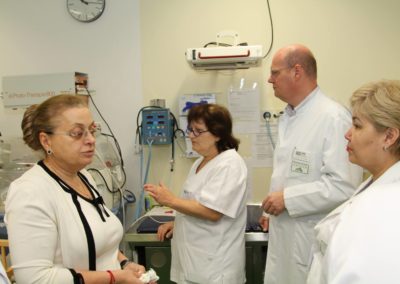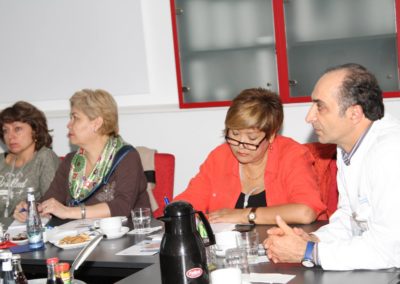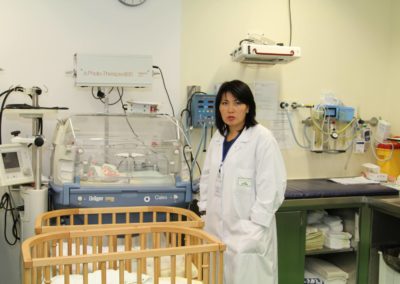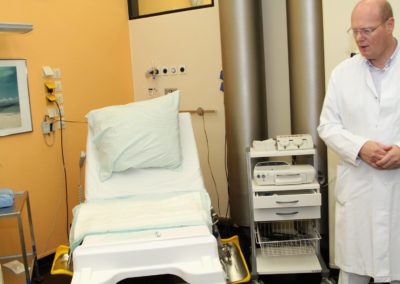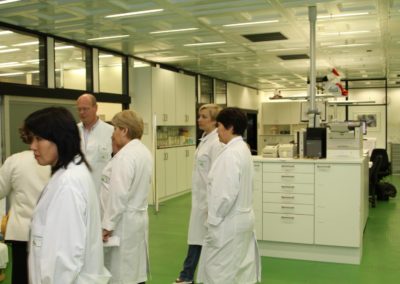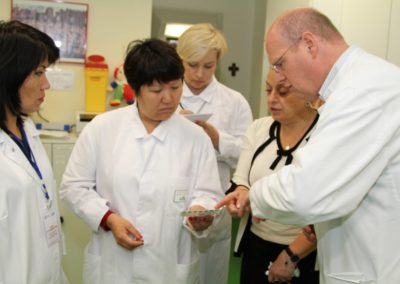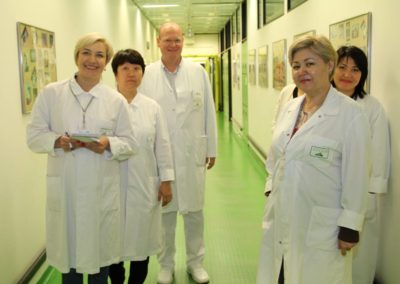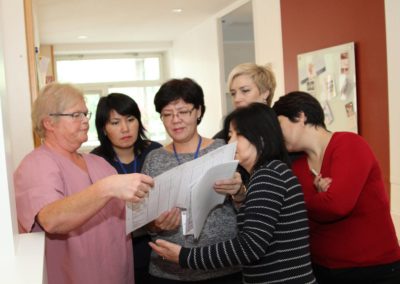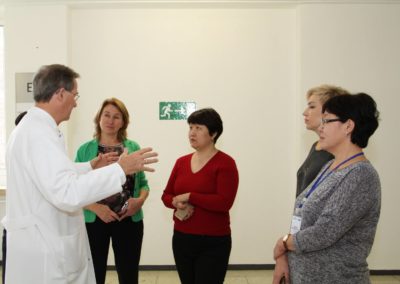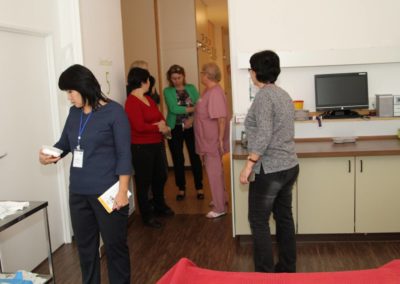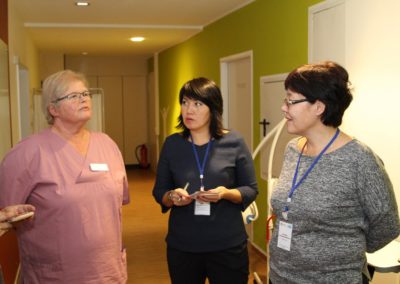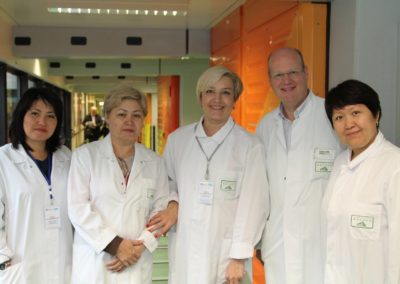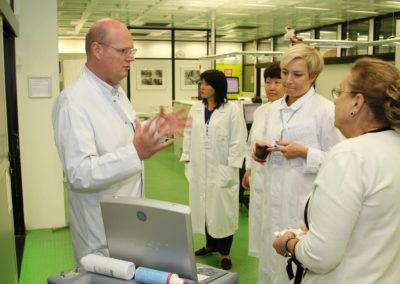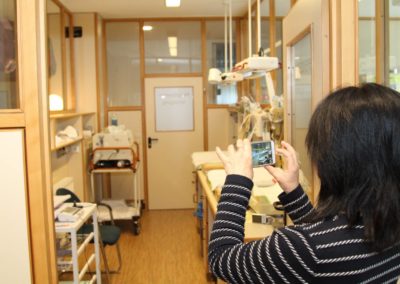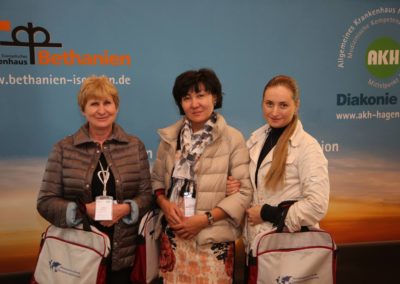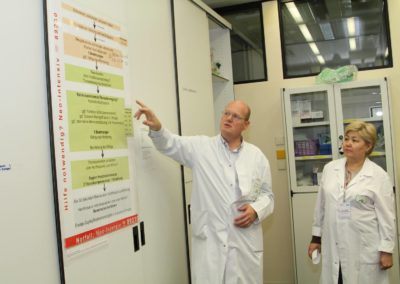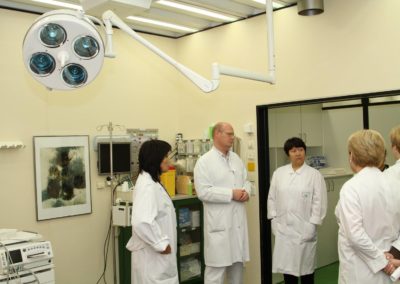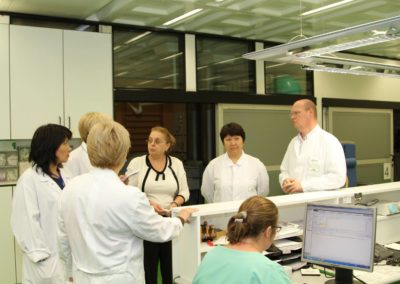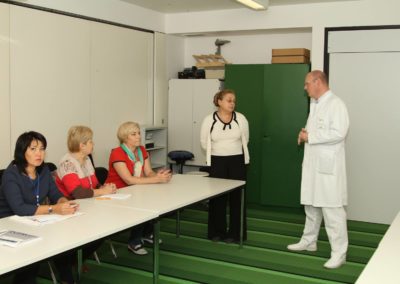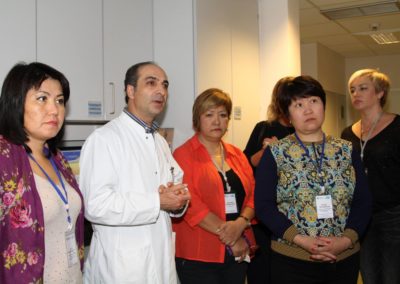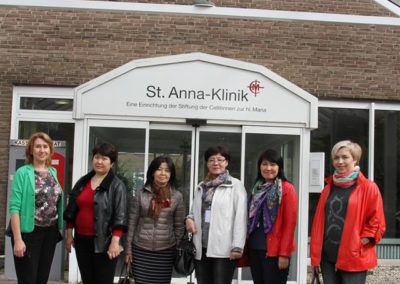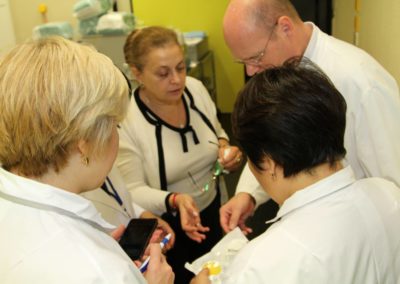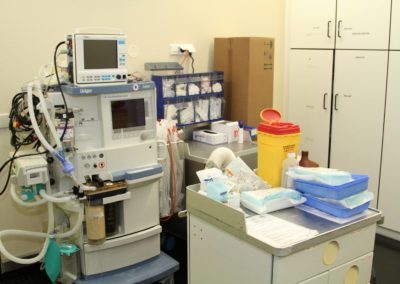21.09. – 26.09.2015, Germany
In Germany, gynaecology and obstetrics form the largest group of specialists after internal and general medicine, anaesthetists and surgeons. Several German clinics are among the leading centres for gynaecology throughout Europe. For gynaecologists from Kazakhstan and Russia, these were good reasons to learn from their German colleagues. From 21 to 26 September 2015, the participants of the study trip had the opportunity to observe at several clinics in NRW. The foreign gynaecologists were particularly taken with the visit to the Clinic for Gynaecology and Obstetrics at the Leverkusen Clinic. A two-hour presentation of the clinic was followed by a tour of the delivery room, the area for prenatal diagnostics and the neonatal intensive care unit. The head of the gynaecological clinic, Prof. Dr. Kubilay Ertan, emphasised the special features of the facility: “We treat about 500 newborn patients per year, of which more than 50 are premature babies with a birth weight of less than 1,500 grams.” It is also the only hospital in Germany, Ertan said, where amniotic fluid deficiency, which can cause miscarriage, is treated by means of amniotic fluid replenishment. A rich programme also awaited the visitors at the University Hospital in Aachen. The head of the Department of Prenatal Medicine, Prof. Dr. Tamme Goecke, reported on the areas of activity and the organisational structure of the gynaecological clinic. Among other things, he told about the training of specialists, research and equipment as well as the use of innovative methods in obstetrics. In the Department of Prenatal Diagnostics at the Düsseldorf University Hospital, headed by Dr Gabriele Bizjak, the doctors were able to experience modern diagnostics live. For this purpose, they took part in several examinations of pregnant women. The highlight of the day at the University Hospital was the visit to the Institute for Human Genetics and Anthropology and the exchange with Dr Barbara Leube about the possibilities of modern genetic diagnostics in prenatal medicine. In addition, the participants of the study trip explored several urban centres for prenatal diagnostics. In the gynaecological clinic of the Lukas Hospital of the city of Neuss under the leadership of Dr Jörg Falbrede, the participants were allowed to assist in operations. The visiting gynaecologists tackled this practical task with great enthusiasm. An excellent organisation of the study trip and the unique opportunity to experience German gynaecology at first hand and to participate in it were appreciated by all study trip participants. “We were fascinated by the variety of different facilities, all of which are at the cutting edge of technology and knowledge. I would repeat such a study trip at any time,” summed up Valentina Vasilec, who works as a gynaecologist in Saint Petersburg.

